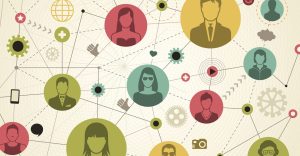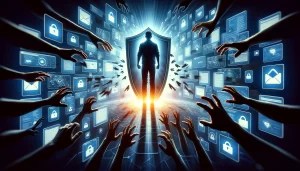Is it the death of democracy?
Obviously not! So far, we discussed the possible worst-case scenario that we may end up in, from both a governmental and an organizational point of view. However, even if these argumentations were backed up by some concrete examples, they were mostly interesting mind exercises to logically what it may pessimistically happen in the – near – future.
Conversely, we can affirm that there are some major differences between the dystopia as described above and our present and future.
First of all, we live in a capitalistic era, where economy and free market is the highest power. Even if this sounds inhuman, it actually benefits us, as representation of the highest individual freedom with regards to the economy, where the equality of doing anything reigns – theoretically – supreme. This allows the birth of laws purposely made for fighting unfair competition between bigger and smaller competitors, agglomeration of multiple companies into one, and such.
The companies work for offering a quality product to their costumers, as in a capitalistic society the costumer could choose to leave these companies in favor of others. Thus, these firms may temporarily hold an excessive amount of potential social power, but their move is to be as appealing as possible to the end consumers, who at the end of the day define the survival chances of the companies.
Moreover, companies are not governments – even if in some cases this gap is closing -. As such, there should be no reasoning behind “spying” on their costumers. The only breach in someone’s privacy may be the automatic retrieve of its data, to use for training models that then are deployed to give an even better experience to the end users.
Furthermore, this type of behavior is only being enhanced by technology, but it still is nothing new, as always companies have asked and investigated – directly and non – what their costumers may like and dislike of their product, with the sole intent of improving it. The main difference is that, using a digital service many more of these types of indicators are easily available, retrievable and usable for improving their products.
Finally, these are companies and not governments. Governments try to, for one reason or the other, reduce the citizens’ privacy in favor of hypothetical safety benefits. Companies try to reduce the costumers’ – and not indiscriminately of every member of the population – privacy furthermore notifying them by privacy licenses and agreements, for improving a product the users are, in one way or another, paying for or using.
In conclusion, arguably this near future scenario that is in front of us can be seen as scary, if compared to Huxley’s dystopia. Companies are starting to hold more and more power, and we do not effectively know what is happening behind thee curtains. Reasoning with the capitalistic free market mentality, regulations that allow the free economy to exists and business alternatives to co-exist side to side to bigger realities should help us avoiding this terrible future. The most important thing one could take away from this all is to critically assess everything as critically as possible and make your tools an extension of yourself.

